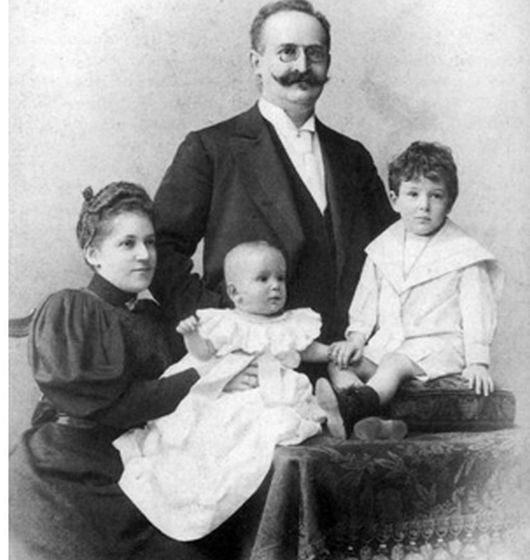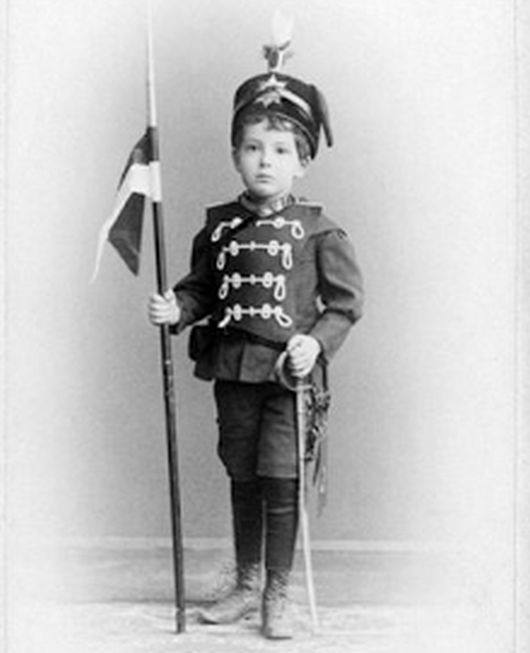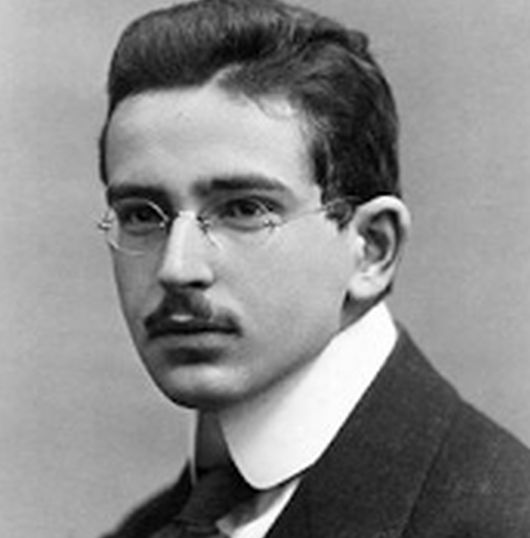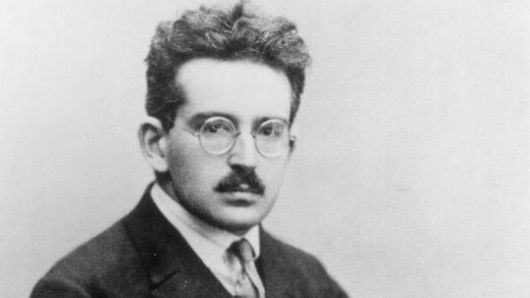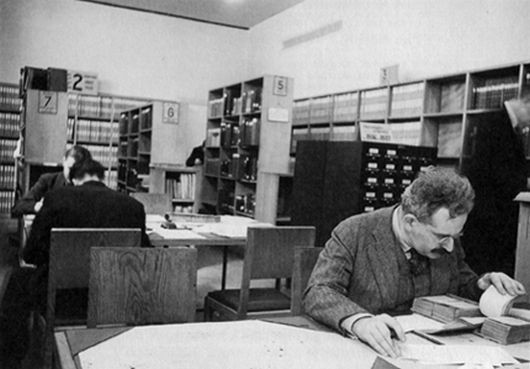
Where Walter Benjamin
by SARAH MCKEE
As one has always known but only lately begins to realise, feeling odd in the world is naturally solved or at least salved by pursuing a figuratively nomadic lifestyle. Far better to be an official alien than a suspected one, oder?
Here in Berlin thought is noisy, narrative, visual, mushy, racy, methodical, dependent, textured, wistful, aggressive, romantic, fluid, disjointed, curious, full of juncture and discrepancy. Thought forms a congregation of alligators: it is screamingly fascinating, easily lost because seldom satisfactorily expressed. Thought is written down to make it less real – to make it less seemingly symbolic, or else symptomatic of self-centeredness, or of something less banal and more medicatable. Write it down to make it less real. Repeat. Thought here in Berlin is similar to elsewhere, then, except that everybody eventually asks about the pace. And, yes, it’s different, naturally, yes, naturally: it’s perfect.

Do you follow me? Well, stop. Groucho Marx is often a short distance behind or in front – quippish, unimpressed, never growing old, never wearing the bottoms of his trousers rolled except for comedic effect, when proposing. He would prefer that I do not seem J. Alfred Prufrock – he would prefer me always in a skirt, always bearing a ready smile and pumpernickel. This, however, I have long known (the old-before-time soul comes a-peeking). Besides, unrolled trousers are really the only practical choice in this ceaselessly nipple-chafing freeze.
Groucho et al (other consistent companions tag along, but mark that they all accompany only in a very one-way way) aside, it is easy to be alone in Berlin. Independence is rather expected than not, rather encouraged, rather preferred. Hold hands, with whom? I? Warum? Being a lone wolf in wolf’s clothing suits me to the ground down loosening bones. And yet and yet, there is socialising, naturally. People in creative professions (or in the habit of imagining themselves to be so) are sad and needy the world over, or so it would seem (thank you Art, thank you Social Media, thank you for making it so inescapably apparent that people are just people). One feels oneself needed at the gallery, at the musical comedy show, at the university, at the bookshop, at the favourite bar or café, at the cramped and toy-strewn apartment, at the hospital. More distantly, one feels oneself needed through a computer screen sounding out Star Trek-ish loop-de-loops, and in the form of long-ago received letters with return addresses blank-staring back near to somebody’s old saliva. There is, one learns, madness among penguins – there is depression or at least pervasive melancholy among friends, among family members, and among aching new acquaintance. This, however, to qualify once more, I have long known. Such blues do not follow but rather form a body (one nods sagely).
In the other life – in the life in which I stayed in Hay-on-Wye, masquerading as a small-town girl, a big ol’ provincial fish in sheep’s clothing – my seventy-nine-year-old best friend and housemate misses me. I return as chrononaut to request gently that he take the medication which would have prevented his bleeding to death. I smile at his stubbornness, hold his Prospero hand, say "I love you" again, loudly enough this time. I do not leave him for Berlin.

These people (the ugly word "ex-pat/s" must be spat out on occasion) anthropomorphise the city like a motherfucker.
The angriest comedians are the city’s ‘bitches’, bent over and so on – this evocative visual metaphor is, by the by, what’s called a hacky premise.
The young unhappy mother is the city’s bitter captive, la llorona, weeping and dragging the river for her own child self.
The young father, however, was born to the city: he returns to it as to the arms of a fond, cruel parent, who will strike a disciplinary strike at any sudden moment.
The student only seeks a brief affair – enthusiasms and substances and unexpected orgasms a wall’s width away from plimsoll-ruining snow.
The musician fell into a long-term abusive relationship with the city, on the rebound from a real one with an actual human person, who still lives and breathes in the country to which she is about to return.
The dear kind friend sees the city as a dear kind friend who helped her into recovery, who helps her to feel calmer and nobler about managing her own identity.
The happy couple which travels all over finds the city’s offer of a comfortable couch, plus health insurance, plus excellent public transport, to be appealing and correct: of course Berlin is good to us – as good as a cool-as-smoke older brother.
These people, of which I am one. I am Berlin’s new and faithful spouse. I will not cheat or leave. We are almost six months in and I am still in love. The elation has been tempered slightly since we have shown each other our boring sides (Sunday closure, lack of j-walking, the Hohenschönhausen district – on my part, the relative lack of interest in clubs, drugs, and casual sex with over-sensitive strangers) and begun to navigate the points which I imagine will always cause friction (punctuality, general organisation, directness and honesty versus ambiguity and privacy, surprisingly badly arranged postal service, coffee served in meagre amounts, absence of liquorice Rizlas and lined yellow paper, prevalent homelessness despite a generous and efficacious welfare system). We are willing to negotiate these issues because we really want it to work out, and will work hard and long hours on maintaining the quality of the relationship.
Berlin loves me too, I can tell. It shows me so daily in little kindnesses. I have never felt this way before. The city is definitely too cool for me, a bookish recluse concerned with fibre intake and brisk walks, whatever the weather. Nonetheless: somehow we will make it work.

Walter Benjamin may be the best person who ever lived in a city and who, unincidentally, grew up in this city. He is an expressed advocate of waiting and of getting lost, activities usually considered inconveniences, non-activities. My marriage to Berlin has been described using all of these verb forms. On staircases and escalators the calves of others do also form a forest before me, disorientatingly and "defenselessly exposed to the bad odours emanating from all the bodies pressing so closely against mine," as he writes in "A Berlin Chronicle." Benjamin sees people this way, indistinct and clumpish, or that way – that is, as types ("the friend, the betrayer, the beloved, the pupil, or the master") observed from his absorbent, observant flânerie.
Much as I like to play the game of identification with dead men, I am not deluded (thank you for asking). Walter Benjamin and I are not so similar. For one, he seldom writes about human encounters, but outlines "the people closest to me in Berlin - whoever and whenever they may have been. The atmosphere of the city that is here evoked allots them only a brief, shadowy existence. They steal along its walls like beggars, appear wraithlike at windows, to vanish again, sniff at thresholds like a genius loci, and even if they fill whole quarters with their names, it is as a dead man’s fills his gravestone."
Benjamin’s morbidity compliments that of Berlin and outstrips mine by several miles. A constellation of my experiences would map strange and lonely but essentially living (that is, undead) people as its stars. People talk, and I consistently care more about gathering their stories than about most other things. In general the labyrinth is populated and (yet) benevolent. It is obviously the privilege of time which allows for my enchanted view: historical time which has passed plus contemporary time still passing. Enchantment, in the Schiller/Weber sense of the word, encompasses the delusion which I denied above. It makes it possible to forget, at various and variously significant moments. It makes it possible to imagine and experience Berlin as Neverland, as a suspended childhood: "For childhood, knowing no preconceived opinions, has none about life. It is as dearly attached (though with just as strong reservations) to the realm of the dead, where it juts into that of the living, as to life itself."
In the room with big windows, in the flat I share with people who are not friends, in the least ‘gentrified’ and most ethnically diverse district of Berlin, there are fewer material confirmations of Benjamin’s compelling metaphors. Nonetheless: he bolsters abstractions just as well. Slicing an onion into sharp scores and a carrot into dozens, I remember that I am still learning to want to take care of myself, after one score and several neglectful years.
I remember that the mind is still plastic, that notions and attitudes may be adopted or abandoned with cruelty or care, that there may be pressure to announce oneself as this or as that, but that this can be avoided just as well as people. For instance: sometimes the murky swamp of real relationships is further obscured by the fata morgana of romance, and caution seems so lame and so necessary. It goes like this, "Shall we tether our lives together?", or worse "Shall we pretend we will tether our lives together?", to which "What for?" seems a reasonable answer. But all this could change. This, too, could change. Meanwhile a friend’s proclamation – "you are going to die alone" – is unkind only in intention: the content is merely true. Dying alone is not limited to me, or to Walter Benjamin, or to Groucho Marx, or to my lost best friend, or to those commemorated by the thousands of 10 centimetre squared brass plaques under my meanwhile quick-living unthinking feet. The Stolpersteine are undeniable – they’ll trip one up even when one is standing still, will suddenly make one stumble and choke up some slushy mid-afternoon outside a kebab shop.
Personal anecdotes do not abound around Benjamin. He kept his cards close and his friends at the distance of the postal service, many borders necessarily between them. Saturnine Benjamin is the unofficial deity of Vergangenheitsbewältigung (literally past movement), which my conversation partner explains as being the taught and received national attitude regarding her country’s recent history. The ex-pat lost boy child-eyed forgetfulness, and the narcissism of creating one’s own narrative and personification through which to relate to the city, both run counter to the work of my dear dead hero. This careworn wise man addressed his literary reputation with the analysis: "If I write better German than most writers of my generation, it is thanks largely to twenty years’ observance of one little rule: never use the word 'I' except in letters." One tries, Walter Benjamin. One follows you through the benevolent labyrinth, through the city rebuilt on sand and sorrow, as best as one is able.
Sarah McKee is a contributor to This Recording. She is a writer living in Berlin. This is her first appearance in these pages. She tumbls here.
Photographs by the author.

"I'm Lost (I Miss You)" - The Grapes of Wrath (mp3)
"Make It OK" - The Grapes of Wrath (mp3)

 BOOKS
BOOKS  Wednesday, January 22, 2014 at 11:45AM
Wednesday, January 22, 2014 at 11:45AM 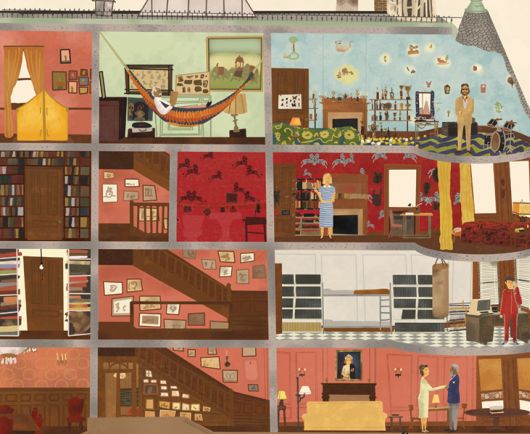
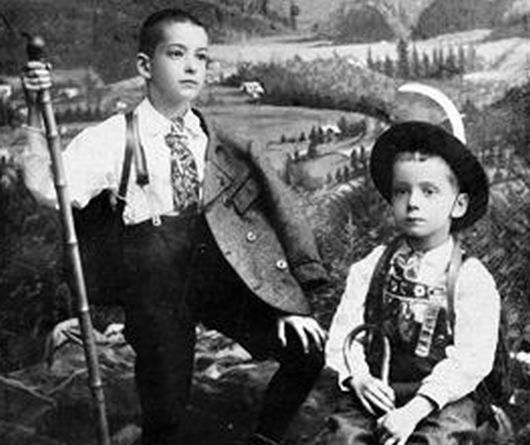 1902Emil's favorite place to be was on the telephone — this way a part of himself could be elsewhere, and a part with his family at all times. The self Emil Benjamin sent out, angry and forceful, was often different from the one they got back. His moustache was ranked either excellent or nonpareil depending on the humidity or time of day.
1902Emil's favorite place to be was on the telephone — this way a part of himself could be elsewhere, and a part with his family at all times. The self Emil Benjamin sent out, angry and forceful, was often different from the one they got back. His moustache was ranked either excellent or nonpareil depending on the humidity or time of day.